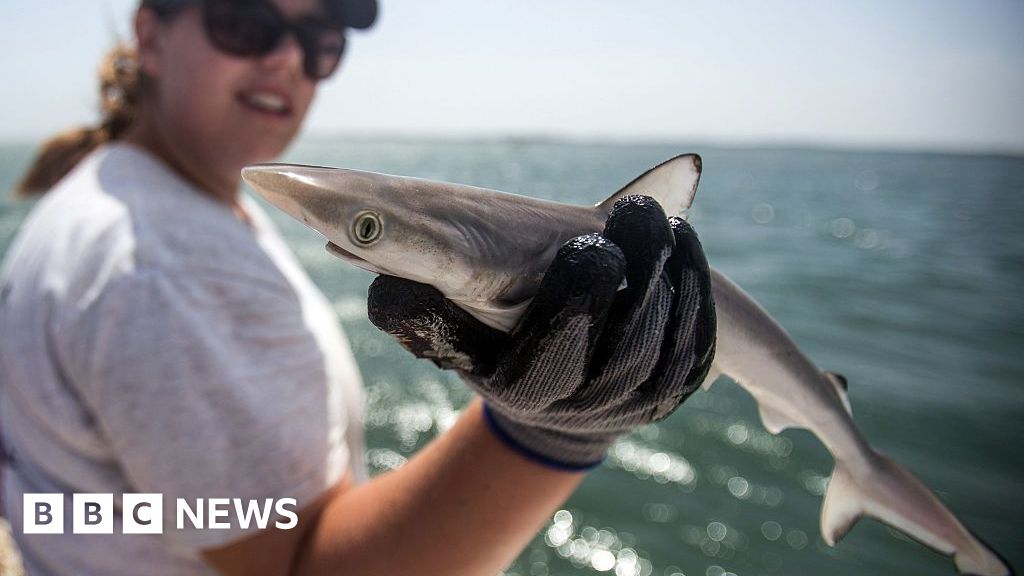Sharks off Brazil coast test positive for cocaine

Sharks off the coast of Brazil have tested positive for cocaine, scientists say.
Marine biologists tested 13 Brazilian sharpnose sharks taken from the shores near Rio de Janeiro and found they tested for high levels of cocaine in their muscles and livers.
The concentrations were as much as 100 times higher than previously reported for other aquatic creatures.
The research, carried out by the Oswaldo Cruz Foundation, is the first to find the presence of cocaine in sharks.
Experts believe the cocaine is making its way into the waters via illegal labs where the drug is manufactured or through excrement of drug users.
Packs of cocaine lost or dumped by traffickers at sea could also be a source, though this is less likely, researchers say.
Sara Novais, a marine eco-toxicologist at the Marine and Environmental Sciences Centre of the Polytechnic University of Leiria, told Science magazine that the findings are “very important and potentially worrying”.
All females in the study were pregnant, but the consequences of cocaine exposure for the foetuses are unknown, experts say.
Further research is required to ascertain whether cocaine is changing the behaviour of the sharks.
However, previous research has shown that drugs were likely to have similar effects on animals as they do on humans.
Last year, chemical compounds including benzoylecgonine, which is produced by the liver after cocaine use, were found in seawater samples collected off the south coast of England.
Related
Youth football teams hold minute’s silence for 10-year-old Poppy Atkinson
Youth football teams and grassroots clubs across the country have held a minute’s silence at the start of their games to commemorate a 10-year-old girl who di
Girl’s death sparks minute’s silence at football matches nationwide
10-year-old Poppy Atkinson was killed when she was struck by a car during a training session at Kendal Rugby Club in Cumbria. Clubs from Leeds to London
Liverpool fans’ Uefa claim can be heard in England, judge…
The high court, sitting in Liverpool, heard Uefa had relied upon the principle that English courts will not inquire into the legality of actions by foreign gove
Alan Shearer’s Premier League predictions including Manchester United vs Arsenal
Caption: Alan Shearer?s Premier League predictions credit: Getty / Metro After some impressive results for English sides in Europe the focus is












